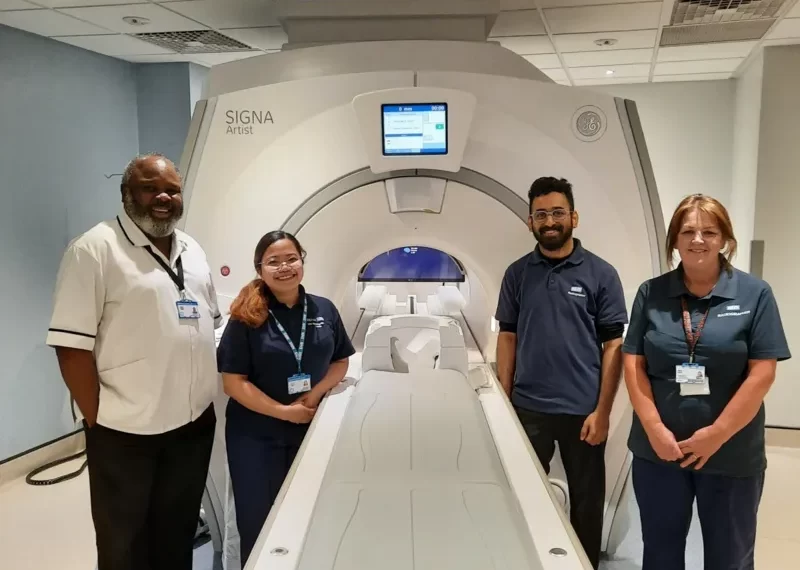Artificial Intelligence (AI) is transforming patient care at hospitals in Hull, where new software is significantly reducing MRI scan times, enabling staff to treat more patients efficiently and with improved comfort.
The Hull University Teaching Hospitals NHS Trust confirmed that AI-driven imaging software has been installed at Hull Royal Infirmary and Castle Hill Hospital, with plans to extend it to Scunthorpe General Hospital and Diana, Princess of Wales Hospital in Grimsby.
The Air Recon Deep Learning (ARDL) software, integrated into existing MRI machines, uses advanced algorithms to reduce background noise and generate clearer images in less time.
“This means we can reduce the scanning time on certain sequences but still get the same imaging quality,” said Karen Bunker, Head of Imaging at the trust.
The AI tool has led to notable reductions in scan durations:
- Routine MRI head scans now take 20 minutes instead of 30.
- Prostate scans are down to 30 minutes from 45.
- Lumbar spine patient throughput has increased from 21 to 31 scans in a 12-hour shift.
Staff report that the streamlined process is not only increasing the number of patients scanned daily but also improving the experience for those who previously struggled with the procedure.
“People who struggle with claustrophobia or those with learning disabilities, who previously couldn’t tolerate a scan, are finding they are able to endure the shorter scan times,” Bunker noted.
Additionally, the need for general anaesthesia among children undergoing scans has significantly decreased — a major safety and cost benefit.
The use of AI in diagnostic imaging is part of a broader global trend in healthcare innovation. Hospitals worldwide are turning to AI to help radiologists manage growing workloads, speed up diagnosis, and enhance accuracy.
AI tools, trained on vast datasets of medical images, can now detect abnormalities such as early-stage cancer, internal bleeding, or fractures in a matter of seconds — a task that might take human specialists several minutes or more.
This ability is particularly vital in overcrowded or under-resourced hospitals, where delays in diagnosis can have life-threatening consequences.
The successful implementation of AI at Hull’s hospitals signals a promising future for tech-driven healthcare delivery in the NHS and beyond. As AI systems continue to evolve, patients can expect faster, more accessible, and more personalised care, while healthcare professionals benefit from enhanced tools to support clinical decision-making.
For now, patients in Hull are already reaping the rewards — faster scans, reduced anxiety, and quicker diagnoses, all made possible by a quiet revolution happening inside the imaging rooms.
Click the link Puretvonline.com | WhatsApp Channel to join the WhatsApp channel
GOT A STORY?
Contact/WhatsApp: +233243201960 or Email: manuelnkansah33@gmail.com

